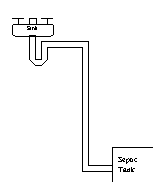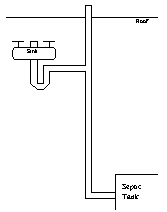  |

This is a chapter from the book The Teenager's Guide to the Real World by Marshall Brain, ISBN 1-9657430-3-9. For more information on the book please click here.
Chapter 35: Understanding Laws, Police and Lawyers
- Speed limits
- Noise ordinances
- Minimum drinking age
- Community standards
- Curfews
- Social etiquette
- Bureaucratic rules, like those at the Department of Motor Vehicles
- Building codes
- Drug prohibitions
- Closing times
- Truancy rules
- Licenses and permits
- "No Trespassing" signs
- Helmet and seat belt laws
- Application deadlines
- Dress codes
- Parental rules and restrictions
- School regulations
- And on and on and on
It seems like every time you turn around someone else is telling you what you can and cannot do. It may also seem like a large number of these laws and rules are ridiculous and unneeded. Why are there seat belt laws, for example? If you want to drive around without a seatbelt, why should anyone care? Same thing with helmet laws on motorcycles. Why can't 16-year olds buy beer? Why can't people play their stereos as loud as they want? Why are there building codes? If you want to build something, why can't you simply build it rather than having to read and abide by the uniform electrical code, the uniform plumbing code, etc.?
 Rules, restrictions and laws are all facts of life. There is nothing
that you can do about them but accept them. However, they are
much easier to accept if you understand their intent and realize
that they are open to change.
Rules, restrictions and laws are all facts of life. There is nothing
that you can do about them but accept them. However, they are
much easier to accept if you understand their intent and realize
that they are open to change.
IT'S A LOT BETTER THAN IT USED TO BE
One thing to keep in mind is that, at least for teenagers, things
are a lot less restrictive than they used to be. The following
are the "Regulations for Dormitories"
that were posted on every student's door at North Carolina State
University in 1905:
Duties of Students. -
To be present at all classes, exercises, formations and inspections;
to observe the college regulations; to avoid whatever wastes time
and money, or damages health and character; to do unto others
as you would be done by.
Study Hours. - 8:15 AM to 1:15 PM - 2:15 PM to 4:15 PM - 7 to 10:30 PM
Inspections. - PM 7:00, 9:00, 10:30; Sunday, breakfast formation; special inspections at any time.
Rooms. - Swept, tidied and bed made by 8:00 AM and kept so; doors unlocked 8:00 to 10:30 AM; each occupant responsible for room and contents
Uniform. - Worn at all times (except during work in Barns, shops, laboratory, etc.) by all students (except winter course students and specials over 21 who room and board outside of college).
Liberty. - For all, Saturday PM 1:30 to 6:00; Sunday, 8:30 AM to 1:00 PM, 1:30 to 6:00 PM; 7:15 to 10:30 PM.
Juniors - Friday, 7:15 to 10:30 PM; sign liberty book (Friday night).
Seniors - Two evenings (according to choice), 7:15 to 10:30 PM; sign liberty book (nights of choice).
Vaccination. - Required of all students
Withdrawal. - Any student not employing his time profitably to himself and to the college.
Dismissal. - For cheating,
falsehood, stealing, insubordination, hazing, drunkenness, gambling
and other gross offenses.
1 demerit for tardy, loafing in study hours, delaying to send in excuse.
2, absent dinner or supper formation, untidy room.
3, absent breakfast or chapel formation.
4, absent 7:00 PM or 9:00 PM inspection; not wearing uniform, not signing liberty book, lights after 10:45 PM.
10, absent 10:30 PM inspection; absent class, shop, drill; violating liberty in daytime, smoking cigarettes or having same in room or possession; playing cards or dice or having same in room or possession; having in possession or room pistol, dirk or other deadly weapon.
25, absent after 11:30 PM, violating liberty at night.
50 to 100, very disorderly or scandalous conduct; using liquor or having same in possession or in room; interference with others.
100 demerits in one year will require withdrawal.
If these were the restrictions imposed on college students at a public college, you can imagine what the restrictions for high school students must have looked like in 1905. The point is, teenagers are freer today than they have ever been in the history of the world. Whether that is a good or bad thing is a topic frequently debated by adults.
THE PURPOSE OF LAWS AND RULES
Although it may seem at times that laws and rules are nothing but obstacles to your freedom, most laws and rules have legitimate reasons for their existence. There are three reasons for a law or rule to exist:
- A law exists because a majority of the people in this country agrees with it. Why can't you walk down the street naked on a hot summer day? Because a majority of people in this country don't want to look at you. It's as simple as that.
- A law exists because it promotes the health or safety of everyone in society. Seat belt laws are enforced in all 50 states because seat belts save a lot of lives. A majority of people will normally support life-saving rules even if they infringe on personal freedoms to some extent. All building codes and health ordinances exist to protect the public in this same way.
- A law exists because it helps society to function more smoothly. Traffic lights are a perfect example of this sort of law. Because people obey traffic lights society works efficiently. If everyone did whatever they felt like doing at every intersection, we would have anarchy.
You can see an example of the second type of law when looking at building codes. Building codes are a classic example of rules that are put in place and enforced to protect the public health and safety. They also demonstrate how changes take place over time as society learns new things and why upon your arrival on the scene things seem like a complicated mess.
Take the building codes for plumbing. Let's say you want to put a toilet in a house. Two or three hundred years ago this was not a question--everyone used outhouses. If you visit the Governor's mansion in Williamsburg, VA, you will see that even England's high colonial governor used a pair of three-holer outhouses located at the back of the formal garden. Eventually, public water supplies and pressurized well systems allowed people to have indoor plumbing, and this allowed for the addition of indoor toilets. A toilet has to flush somewhere, so sewer systems evolved.
Why can't you run the sewer line from a toilet or a sink out of the side of the house so it spills on the ground? That certainly would be easy and inexpensive, but people learned fairly quickly that human waste spilled on the ground smells bad and leads to incredible disease problems. Therefore, the idea of septic tanks and sewer systems evolved. The uniform plumbing code lists hundreds of rules for septic tank installation. These rules ensure that tanks work properly over many years. Now that you have a septic tank, you can add sewer lines from the sink or toilet to the septic tank. Say you tried this approach:

The problem with this approach is that as the septic
tank fills up with stuff it produces a rather malodorous cloud
of fumes. These fumes float from the septic tank up the sewer
line to the sink and into the bathroom. Not good. Therefore, plumbing
codes require a "P-trap" at every drain opening, as
shown here:

You may have wondered why you find these funny loops
of pipe under every sink in your house. The idea is that water
gets trapped in the "P." This water blocks the fumes
from the septic tank and keeps them from entering into the bathroom.
Unfortunately, a P-trap alone does not solve the problem because
it turns out that the fumes in a septic tank are under pressure.
The fumes simply bubble through the water in the trap and cause
the same problem. Therefore, there is the concept of a vent
pipe, which allows the pressure to escape, as shown here:

You may have always wondered why houses have pipes sticking up out of the roof. They are vent pipes to relieve the pressure so that P-traps can do their jobs. It turns out vents also break vacuums so water flows down the pipes faster. Besides covering P-traps and vent pipes, the uniform plumbing code specifies all sorts of other things:
- The required diameters for pipes
- The allowed materials for pipes
- The types of joints you can use
- The necessary supports for pipes
- The angle at which pipes must fall
- The longest distance for lateral pipes
- And on and on and on through hundreds of pages
The code seems huge and totally ridiculous when you first see it because you missed the 100 years of evolution that have brought us the code we have today. The thing you realize as an adult is that, instead of being ridiculous, all of these rules actually work. When plumbers follow all the rules, they are able to create extremely reliable and safe plumbing systems. Over time new rules get added as people realize funny little quirks and nuances. These new rules prevent problems in the future, and each one makes the code a little bigger and better. Our entire legal system has grown in exactly the same way over the course of several hundred years.
Although it may not seem like it to you, nearly every law or rule has a reason behind it. It either promotes health or safety, helps society to run more smoothly or supports something a majority of the people in this country believe is a good idea. If you find a law where none of these three things are true, then it is time to change the law.
LAWYERS
A lawyer is a person trained to understand our legal system. Because the legal system has grown steadily more complicated over the last several hundred years, a lawyer is almost essential whenever you need to negotiate a legal problem. Let's say that you are unfortunate one day and are pulled over for speeding. Unless you were going 100 miles per hour, you will generally be allowed to either mail in the fine or appear in court. What should you do? You should get a lawyer and appear in court. Even though a lawyer may cost several hundred dollars, it is worth it. Here are two facts of life that you must keep in mind:
- The fine on the ticket may be only $50 or $100, but if the violation shows up as points on your car insurance your insurance will go up. A lot. That is a fact of life. It may be that you are not paying for your car insurance right now, and in fact have no idea how much car insurance costs. Therefore, you might be thinking, "What do I care?" If your parents end up paying $300 a year more for your insurance, that is $300 a year they can't spend on something else, and thus it is $300 they cannot spend on you. Or they may ask that you pay the increase, and then you really will care.
- Points on your insurance last three years in most states. Eventually you will have to pay the insurance bill, and then it really will be your problem. You will be paying $300 extra a year for no good reason. Because the rise in insurance rates greatly exceeds the fine on the ticket, your goal is to avoid the insurance penalty if possible.
When you go to court without a lawyer you will be asked to plead "innocent" or "guilty." If you were innocent you would not have been issued the ticket. Therefore, you are guilty and you might as well have mailed in the fine. With a lawyer present, however, a whole set of extra options open up. Normally a lawyer can do a variety of things to eliminate the points. You will still pay the fine and court costs, as well as the lawyer's bill, but it will end up costing much less over time than an insurance premium increase.
Why can a lawyer get you off the hook? The legal system in this country is incredibly complex. A lawyer is a person experienced with the legal system. The lawyer knows the DA, the judge, all the options and loopholes available in the legal system and all of the areas of flexibility. You hire a lawyer to gain access to this knowledge.
Is this a fair system? Should we have a legal system so complicated that a specialist, in the form of a lawyer, is required to help a normal citizen negotiate it? Should a specialist be able to charge money for this service? Is it fair that rich people, who have the extra money to afford a lawyer, have greater access to this sort of help than other people? These are all good questions. However, it is a fact of life that the system currently works this way. If you don't want to deal with lawyers then don't break the law. It's as simple as that. Or work to change the system.
LAWS AND RULES CHANGE
Look back at the "Regulations for Dormotories" shown earlier. You may have noticed that those rules no longer apply. If you are a teenager and think those rules are dumb, you should thank all of the college students who protested in the 1960s for the elimination of most of those rules, the elimination of the concept of in loco parentis, the creation of such things as coed dorms and so on. It really is possible to change things.Laws and rules are constantly changing. Because you are a teenager and have probably not been through a major change cycle, it may seem to you that this statement is untrue. However, rules are constantly in flux as the ideas, principles and mood of the majority changes. For example, it was illegal for a woman to vote 100 years ago. No one would consider denying women the right to vote today.
One of the most interesting changes I have noted in my lifetime has been the change in smoking rules and regulations. When I was a kid people could and did smoke anytime, anywhere, in any public place. They smoked in airplanes, restaurants, offices, movie theaters, meeting rooms and so on. There were absolutely no restrictions on smoking because a majority of adults in the United States smoked. Look at how things have changed. It is now illegal to smoke in virtually any public area. People stand outside of office buildings to smoke. It was an amazing transformation to watch. In terms of social change timelines it happened very quickly.
The thing that caused this change was the fact that smokers lost their majority in the population. As people have realized how unhealthy smoking is, people have stopped smoking in record numbers. Once non-smokers held a decided majority, all the laws changed.
Let's say you find a law or rule that you think is unreasonable. To change it, all you have to do is convince a majority of voters (meaning adults) to agree with you and work toward a change through your congressman or other elected officials. It is really as simple as that.
DEALING WITH POLICE OFFICERS
Let's say you are driving down the road one night minding your own business. Suddenly, flashing lights appear behind you and you hear a siren. You are being pulled over for speeding. What should you do?When dealing with a police officer, for whatever reason, it is important to keep two things in mind:- It is the job of police officers to enforce the laws of society. As discussed earlier, the laws of society are agreed to by a majority of the people who make up the society. Therefore, what the police force does is a good thing.
- Society has empowered police officers with absolute authority. That means if you give an officer a good reason to do so, he or she has the right and the power to kill you. To avoid having to resort to that level of force, police officers have other options. For example, they can handcuff you and take you to jail. This is not a minor amount of power.
Police officers, by the nature of the job they hold, have to deal with a lot of rather difficult and often deadly people on a regular basis. When police face any armed assailant, from a drug dealer down to a drunk husband, the individual officers are risking their lives. This makes the job of a police officer different from other jobs--things are taken much more seriously. A police officer in every situation is performing an extremely intricate calculus to determine what level of response is appropriate. Into these calculations goes a healthy margin for personal safety as well as for the spouse and kids at home. If an officer is going to make a mistake, it will often be in favor of too much force rather than too little. Anything else would be suicidal for the officer.
From this discussion you can see that whenever you look at a police officer, you are looking at a person who has the power to take away your freedom or your life and who has every reason to do so immediately rather than waiting. A person with that kind of power is not someone you deal with trivially. This is the kind of person that you treat with maximum respect all of the time, even if he or she seems to be wrong at the moment. To do anything else is extremely dangerous and simply asking for trouble.
When you are pulled over for speeding, you should sit in your seat. You should get respectful very quickly. You should place both hands in clear view on the steering wheel so that it is obvious you are not armed. You should make no sudden movements. You should, in fact, do nothing unless you are specifically told to do it. And you should answer every question with "Sir" or "Ma'am." It is as simple as that. If the police officer is wrong it is probably best to simply keep your mouth shut, cooperate in every way and deal with it later in court.
There was a good story that made all the national news shows and papers in November 1996. It demonstrates why this sort of thing is important. A woman saw a police officer writing a ticket for a parked car at an expired parking meter, so she put a coin in the meter thinking she was being helpful to the person getting the ticket. It turns out that this act is illegal in many cities, and it was illegal in the city she happened to be standing in. Does it make sense that this act is illegal? It doesn't matter. This gets back to the whole idea behind laws--at some point a majority of the public, or a majority of people elected by a majority of the public, felt that this sort of law represented a good idea. Once it is a law it is a law until you change it, and that is simply how our society works.
So, what we have is a police officer standing on the street with a woman who has broken a law. It is not the officer's job to judge the validity of the law. It is the officer's job to enforce the laws created by society. The officer told the woman about her violation. If the woman, at that point, had simply gotten immediately respectful and apologized, it is likely the incident would have ended. However, the woman did not do that because she did not understand how the world works. The officer asked for her ID. She refused. At that point she had committed a serious offense. The officer was forced to escalate and told her she was under arrest. He had no other choice. If the woman had gotten respectful at that point, she would have had problems but they would have been relatively minor. She did not. Instead she attempted to turn and walk away. At that point, of course, the officer had to escalate again and break out the handcuffs because she was resisting arrest. The woman started screaming. And so on. She eventually ended up in jail.
At every single point in the transaction the woman did the wrong thing and the police officer did what his job requires him to do. He simply reacted logically to the woman's actions. The point of all of this is simple: this woman wasted a tremendous amount of her time because she did not treat a police officer with the level of respect that a police officer deserves. If you have a lot of free time in your life that you want to spend in jail, you can follow in her path. In general, however, it is not worth it. Police officers act the way they do because it is their job. Understand that and respect it. It is a fact of life.
Return to the table of contents for The Teenager's Guide to the Real World
This is a chapter from the book The Teenager's Guide to the Real World, ISBN 1-9657430-3-9, published by BYG Publishing, Inc. For more information on ordering a copy of the book, click here.

BYG Publishing, Inc.
http://www.bygpub.com - info@bygpub.com
(888)294-7820 - P.O. Box 40492 - Raleigh, NC 27629
Questions or comments, email:
questions@bygpub.com
© 1997 BYG Publishing, Inc. All rights reserved.